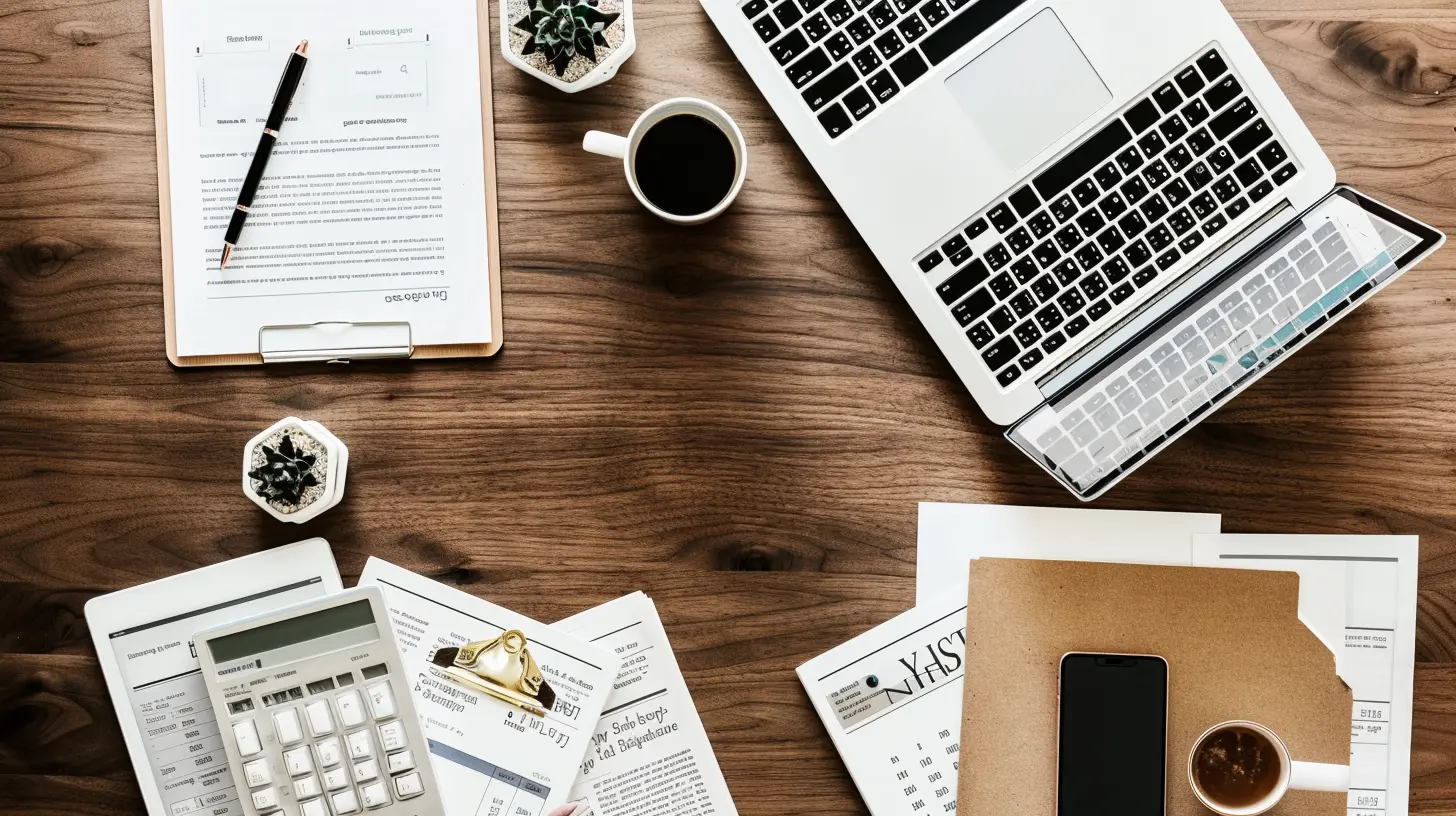How Much Should You Have in Personal Reserves Before Starting a Business?
18 September 2025
Starting your own business is exciting, isn’t it? It’s that spark of freedom and ambition that drives so many of us to take the leap. But let's face it, starting a business isn’t just about having a killer idea and chasing your dreams. It's also about planning—especially when it comes to finances. If you don’t have enough personal reserves to keep yourself afloat while building your dream, you might find yourself in trouble before your business even gets off the ground.
So, the million-dollar question is: how much should you have in personal reserves before starting a business? Let’s break it down together in a way that’s practical, relatable, and—most importantly—doable.
Why Personal Reserves Matter (A Lot)
Think of personal reserves as your financial safety net. You’re about to walk a tightrope called entrepreneurship, and without that net below, a misstep could hurt—a lot. Let’s face it, businesses take time to become profitable. Sometimes, it's months, and sometimes, it's years. During that period, having enough reserves gives you the peace of mind to focus on growing your business without constantly worrying about making rent or putting food on the table.Imagine trying to run a marathon with no water breaks—you’d burn out before you hit the halfway mark, right? That’s what starting a business without personal reserves feels like. Having money set aside allows you to weather the ups and downs of entrepreneurship without making rushed or risky decisions just to stay afloat.
How to Calculate How Much You Need in Reserves
There’s no one-size-fits-all answer to this question because everyone’s financial situation and goals are unique. But here’s a practical way to figure out what works for you:1. Cover Your Living Expenses (First Things First)
Start by calculating how much money you need to survive each month. This includes:- Rent or mortgage payments
- Utilities (electricity, water, etc.)
- Food and groceries
- Health insurance and medical expenses
- Transportation (gas, public transit, etc.)
- Miscellaneous expenses (subscriptions, entertainment, etc.)
Add everything up to find your monthly living expenses. Then figure out how many months of expenses you want to have saved. A good rule of thumb? Aim for at least 6 to 12 months’ worth of reserves. Starting a business can be unpredictable, and this cushion will give you time to figure things out without panicking.
Why so much? Well, think about it: if your business isn’t profitable for 6 months (which is pretty common), how will you pay your bills? This reserve ensures you don’t have to dip into your business finances or rack up debt just to make ends meet.
2. Factor in Business Start-Up Costs
On top of your living expenses, you’ll also need to account for your business costs. These vary depending on your industry, but here are some examples:- Equipment and supplies
- Website development and hosting
- Marketing and advertising
- Legal or professional fees
- Inventory, if applicable
- Licenses and permits
Some businesses might only need a few thousand dollars to get started, while others may require tens of thousands. Be honest with yourself about what your start-up will realistically cost and add this number to your personal reserve goal.
3. Emergency Fund (Because Life Happens)
Life is unpredictable. Cars break down, medical emergencies pop up, and surprise expenses love to take us off guard. That’s why it’s wise to have an emergency fund separate from your savings for living expenses.A solid emergency fund typically covers 3 to 6 months of your living expenses. If you already have this in place, great! But if not, build it into your financial reserves. Trust me, the last thing you want is to delay your business dreams because of an unexpected curveball life throws your way.
The Emotional Benefits of Having Reserves
Now, I know we’re crunching numbers here, but let’s talk about how having personal reserves impacts your mindset. When you have money saved up, you’re not operating from fear. You’ll feel more confident, less stressed, and better equipped to handle the challenges that come with starting a business.Think of it like this: If your business doesn’t take off as quickly as you hoped, personal reserves give you breathing room to adjust your strategy. On the flip side, without reserves, every setback might feel like the end of the world. And trust me, entrepreneurship is already a rollercoaster without adding financial anxiety to the mix.
Common Mistakes to Avoid When Planning Reserves
1. Underestimating Start-Up Costs
A lot of entrepreneurs get overly optimistic about how quickly their business will generate income. Don’t fall into this trap. Be realistic about how much you’ll need to get up and running—and then add a little extra for unexpected costs. (Because something always comes up.)2. Relying Too Much on Credit
Using credit cards or loans to fund your personal expenses while starting a business can put you in a financial hole that’s tough to climb out of. High interest rates can eat up your cash flow, making it harder to reinvest in your business or even cover your day-to-day needs.3. Skipping the Emergency Fund
It’s tempting to think you can dip into your business funds to cover personal emergencies, but that’s a slippery slope. Keep your emergency fund separate and sacred. You’ll thank yourself later.How to Build Personal Reserves (Even If You’re on a Budget)
Saving up for reserves can feel overwhelming, especially if you’re living paycheck to paycheck. But here are a few practical tips to get started:1. Cut Back on Non-Essentials
Take a hard look at your spending. Are there subscriptions you don’t use? Could you cook at home more often instead of dining out? Little cutbacks add up.
2. Set Up a Dedicated Savings Account
Keep your reserves in a separate account so you’re not tempted to dip into them for everyday expenses.
3. Freelance or Side Hustle
If your current job doesn’t leave much room for saving, consider picking up a side gig. Even a few hundred dollars a month can make a big difference over time.
4. Automate Your Savings
Set up an automatic transfer to your savings account as soon as you get paid. You won’t miss the money if you never see it in your checking account.
When You’re (Almost) Ready to Start Your Business
Let’s say you’ve built up enough reserves to cover your needs. Awesome! Before you dive into full-time entrepreneurship, take a moment to double-check your financial foundation. Here’s a quick checklist:- Do you have 6–12 months of living expenses saved?
- Have you accounted for your business start-up costs?
- Is your emergency fund fully funded?
- Do you have a plan for health insurance and other personal necessities?
If you can answer "yes" to these questions, you’re in a great position to start your business. If not, don’t despair—just keep building your reserves until you feel confident and secure.
Final Thoughts
Starting a business is one of the most rewarding journeys you can embark on, but it’s not something you should rush into without preparation. Having enough personal reserves isn’t just about finances—it’s about giving yourself the freedom to focus on your dream without constant money stress.So, how much should you have in personal reserves before starting a business? The answer is as much as you need to weather the first year comfortably. It’s your safety net, your confidence booster, and your ultimate insurance policy against potential setbacks.
Remember, the journey to entrepreneurship is a marathon, not a sprint. Take the time to prepare, and you’ll set yourself up for long-term success. Good luck—you’ve got this!
all images in this post were generated using AI tools
Category:
Personal Finance For EntrepreneuAuthor:

Remington McClain
Discussion
rate this article
1 comments
Zinnia McTier
Unravel the secret balance: How much safety net transforms ambition into success? Discover the hidden numbers behind entrepreneurship.
October 11, 2025 at 4:33 AM

Remington McClain
Having a solid safety net allows entrepreneurs to take calculated risks while reducing stress, ultimately fostering creativity and resilience, which are crucial for success.


